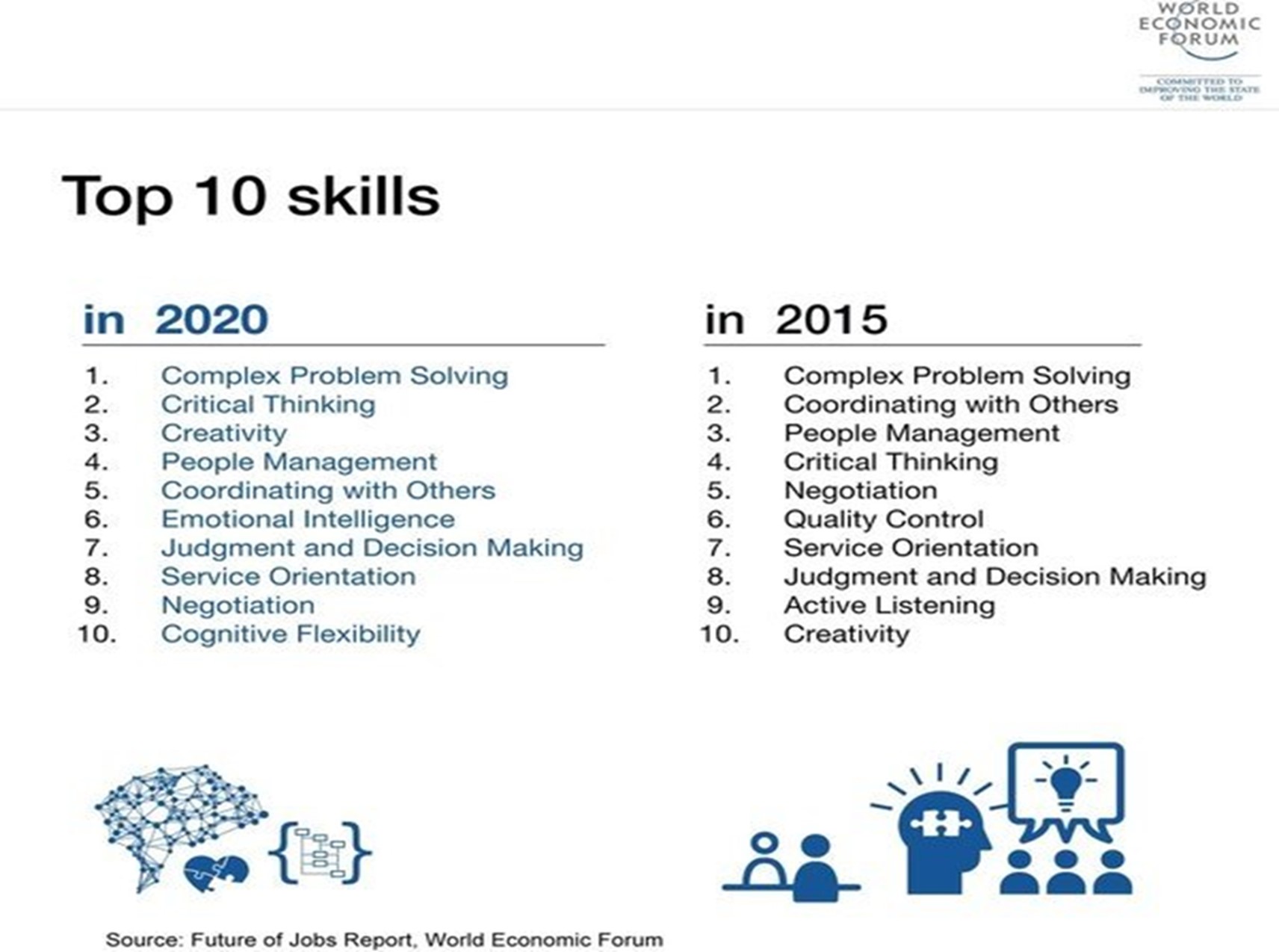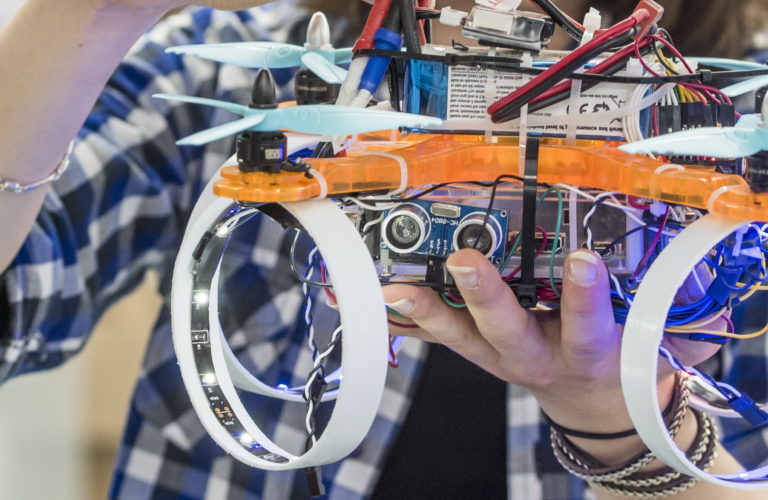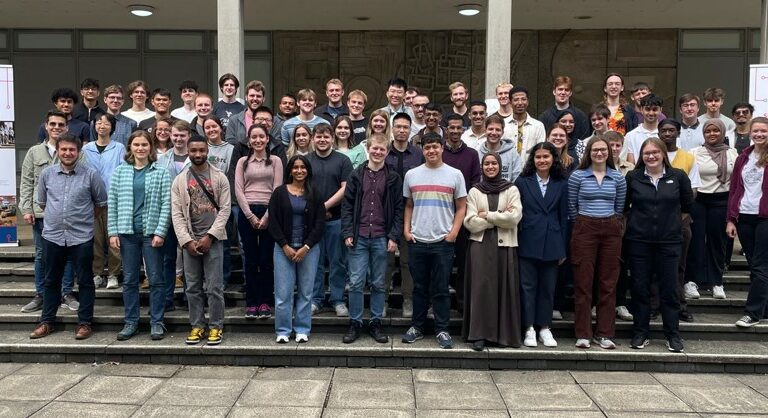So it’s 2020 and the future is here. For a while I’ve been using this graphic when I talk about developing engineering undergraduates through our UKESF Scholarship Scheme:

It comes from the World Economic Forum and their ‘Future of Jobs’ report, which was published in 2016. They said:
“Five years from now, over one-third of skills (35%) that are considered important in today’s workforce will have changed. By 2020, the Fourth Industrial Revolution will have brought us advanced robotics and autonomous transport, artificial intelligence and machine learning, advanced materials, biotechnology and genomics. These developments will transform the way we live, and the way we work. Some jobs will disappear, others will grow and jobs that don’t even exist today will become commonplace. What is certain is that the future workforce will need to align its skillset to keep pace.”
In 2018, McKinsey in their briefing note ‘AI, Automation, and the future of work’ stated that workers will need different skills to thrive in the workplace of the future. They said:
“Automation will accelerate the shift in required workforce skills we have seen over the past 15 years. Demand for advanced technological skills such as programming will grow rapidly. Social, emotional, and higher cognitive skills, such as creativity, critical thinking, and complex information processing, will also see growing demand.”
So, how do things stack up now 2020 is here? The top skills – complex problem solving, critical thinking and complex information process – are all fundamental requirements for being a successful engineer and so there is little change in that respect; learning and practicing these skills continue to be core parts of engineering courses. However, it is interesting to see that ‘creativity’ is prominent in the list of skills required in 2020. Perhaps creativity is not something normally associated with Electronic Engineering? Nevertheless, the Engineering Council state in the UK Standard for Professional Engineering Competence (UK-SPEC) that:
“Chartered Engineers develop solutions to engineering problems using new or existing technologies, through innovation, creativity and change and/or they may have technical accountability for complex systems with significant levels of risk.”
Also, the need for creativity to be part of future engineering education has been recognised by the Engineering Professor’s Council and the IET as one of the six principles in their ‘New Approaches’ (see here). They say:
“In order to reflect developing industrial needs and to attract a broad range of applicants, engineering programmes should enhance and emphasise the creative and innovative nature of the work of engineers; although acknowledging maths and science are important, they are a necessary but not sufficient part of the skill set required.”
So, the message is clear. Now the future is here, creativity needs to be a key skillset for Electronic Engineers, and developing creativity should be a fundamental part of engineering education.



